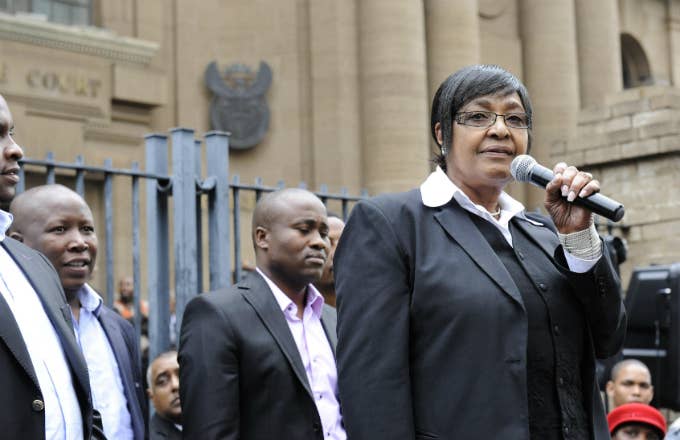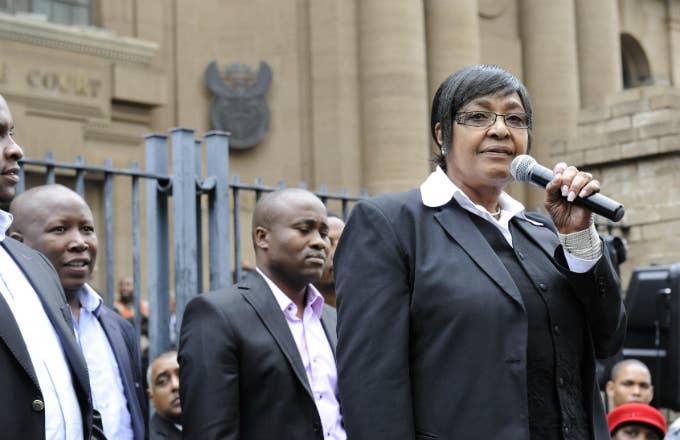
Winnie Madikizela-Mandela, the prominent South African anti-apartheid activist, has died at 81.
"She died after a long illness, for which she had been in and out of hospital since the start of the year," a spokesperson toldBBC News Monday. "She succumbed peacefully in the early hours of Monday afternoon surrounded by her family and loved ones."
In 1996, Winnie was divorced from Nelson Mandela after 38 years of marriage. While Nelson was incarcerated for more than two decades, she fought for his freedom and for the rights of black South Africans. In Monday's statement, the family spokesperson urged everyone to celebrate "this most remarkable woman" whose life was a "gift."
In 1991, Winnie was sentenced to six years in jail for her alleged involvement in the kidnapping of 14-year-old Stompie Seipei, a "militant" who was later found dead with stab wounds to the throat. The sentence was ultimately reduced to a fine, with Winnie denying the allegations.
A story published in 2010 alleged that Winnie had told a reporter that she believed Mandela had "let us down," causing controversy. However, Winnie later claimed the interview had been fabricated outright. "I did not give an interview," she said in a statement at the time.
A documentary on Winnie's life premiered on PBS in February. Director Pascale Lamche called the opportunity the realization of a "long cherished dream" inspired by her 2002 interview with Nelson. "She was a mystery, had wielded enormous power and respect during the years of bitter struggle against apartheid; had fearlessly kept Nelson Mandela's name alive, both inside and outside the country and then suddenly, inexplicably, 'went bad,' if the prevailing narrative was to be believed," Lamche said. "But this demonized vision of her, so widely spread in the Western world, did not jibe with the love and respect with which she was still held amongst the majority of black communities inside South Africa."


